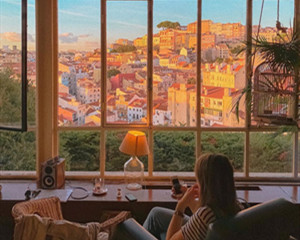And the clincher: 18 months later, they were 50 percent more likely to be alive.
更關鍵的是,一年半后,他們活著的比例比另一組高出一半
The only difference being that group that was healthier, happier, more likely to be alive, had choice.
唯一的區別就在于更健康,更開心,更高存活率的這組,有選擇的權利
They did their own thing. They were asked what do you want to do, as opposed to being catered for, being supported. And in some way, this was too easy.
他們能做自己想做的事,他們會詢問自己想做什么,而不是衣來伸手飯來張口。從某種角度來說,這太輕松了,
There was no choice involved. And when we choose, when we do what we want to, it has implications to our well being, to our success, and to our physical health, to the point of leading to longer life.
不需要做什么選擇。當我們能夠選擇時,當我們做自己想做的事時是有益于我們的幸福、我們的成功以及我們的健康的,尤其是能使我們更加長壽

Significant difference with such little intervention. And yet, so many of the old age homes today are built around the notion of "let's catered to all their needs"- "let's do everything that they desire", "let's make it easy for them".
小小的差異導致了巨大的區別。但今天的很多養老院依然是基于“迎合老人所有的需要”、“滿足他們所有需求”、“為他們提供方便”這樣的理念上的
That's not necessarily good. There's too easy- whether it's the notion that I talked about in the book, "the underprivilege of the privilege", or things are too easy, or we don't fail enough; whether it is in the old age home, or it becomes too easy, as opposed to making choices and struggling and making decisions.
這其實不好,太過于輕松了,不管是我在書里提到的概念——“特權中的非特權”,一切過于輕松,我們失敗得不夠。抑或是老人院里,一切過于輕松,不需要做選擇、無需掙扎、無需做決定












